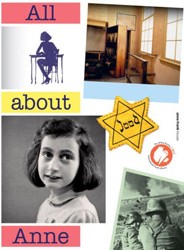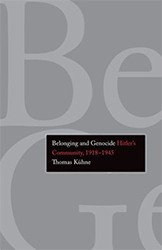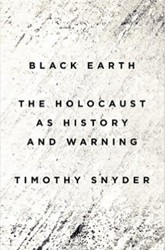“Usually when you tell a story it is over,” Elizabeth Wajnberg reminds herself, taking heart when her parents share another detail of surviving the Holocaust. Her memoir Sheymes — A Family Album After the Holocaust, however, shows this is not always so.
In this story, past and present are inseparable. One moment we’re traversing a tunnel in Switzerland, the next we’re in the forests of Poland. That’s how it was to grow up with survivors: The narrative of the Holocaust is never linear; rather, it explodes into everyday life. Sometimes in lines uttered over and over again (“I jumped out the window! I tore through the wires! I saved you! I saved you!”), sometimes in fragments of information never shared before, and always peppered with expressions from the mame-loshen (mother tongue), the parents’ Polish Yiddish. Any reader who knows Yiddish will enjoy encountering these phrases, and any reader who doesn’t will pick up some fluency with this book.
To read Sheymes is to be spellbound by a force of nature: the author’s mother. Wajnberg so successfully conjures her that the reader can still hear her long after finishing the book: “Give her a fruit,” the mother instructs, forever pushing food on everyone, most of all her daughter, who looks “like a corpse.” Nevertheless Wajnberg has created a loving, poignant, and ultimately tragic portrait of her parents. The mother, who lost her patience for anything while having to wait “a drumming three-day moment,” waited for her older child to be returned from an internment camp at the end of the war, and therefore cannot bear waiting for her daughter’s delayed flight. The ever resourceful father, who survived Buchenwald and took to dealing in cloth in war-ravaged Poland right after the war — white, soft shtikelech (little pieces) — and yet almost gives up fighting the nursing home director who doesn’t want him dine with his wife: “A good person cannot fight against a bad.”
Many readers will relate to Wajnberg’s tales of advocating for her parents in the Canadian health care system, first the long-term care wing in the Jewish Hospital that becomes a shtetl for the mother who loves sitting in the hallway to be “tsvishen menschen,” and later the state-run and neglectful nursing home. But Wajnberg also knows that she herself operates like her parents when dealing with situations of life and death: “’Who called the doctor? It’s against the rules!’ Whose rules? My parents once broke the rules by surviving.”
The story comes full circle when the narrator, who, to her mother’s great dismay, never had children, takes on caring for her ailing parents: “My children, I thought, they are my children.” Now it is the daughter who coaxes the mother. As the mother slips into dementia, the haunted look in her eyes disappears, and nurses speak of her “beautiful smile.” This is the mother whom both daughters recall never smiled at them and yet, the reader will be glad to have been invited into this family.
Related Content:




